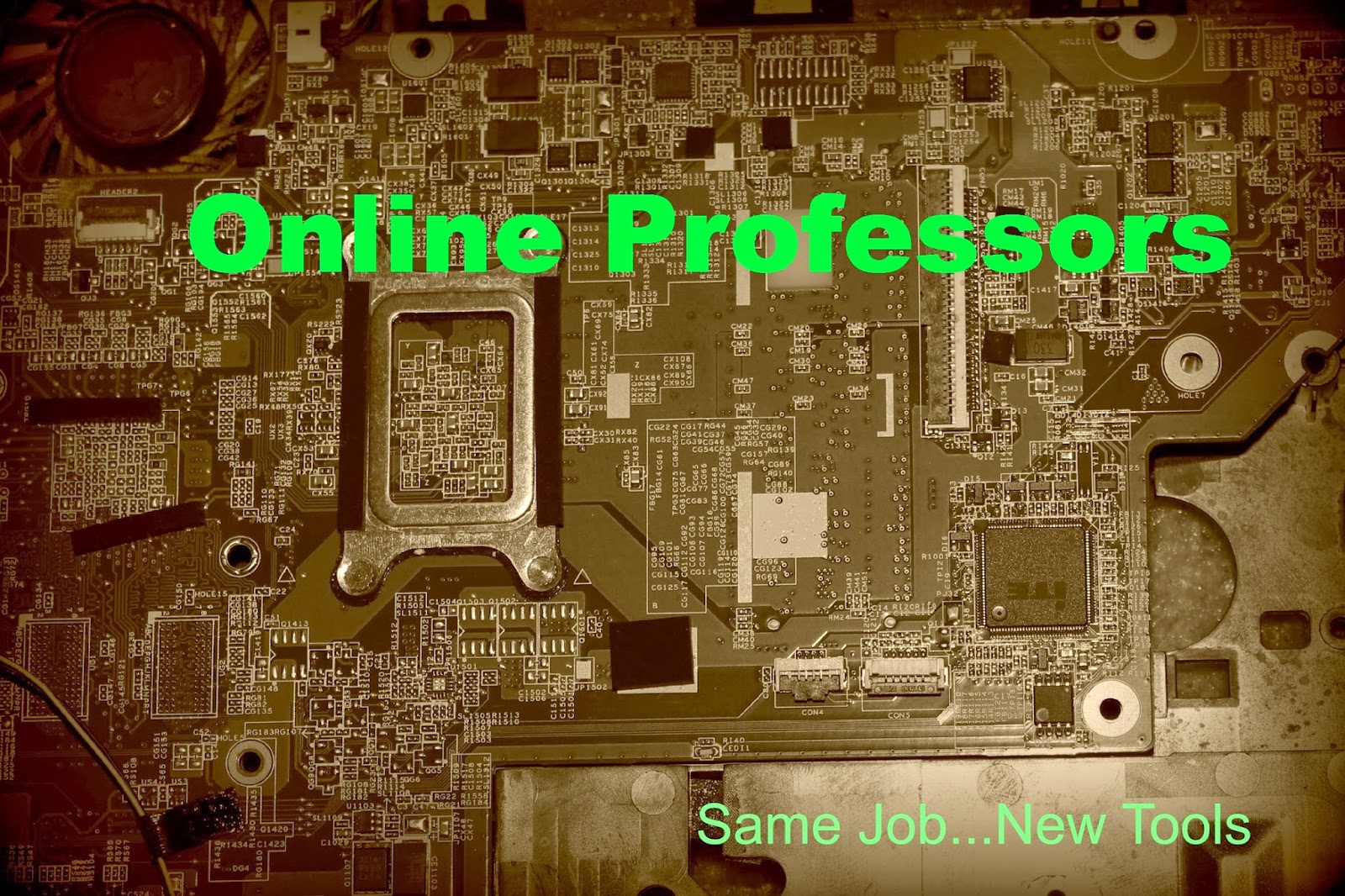Online classrooms have made their way onto the
education scene in a big way. A considerable amount of higher education
institutions have begun to understand the benefits of online coursework. Most
educational theories are based within face-to-face classrooms and online
classroom research is lacking. A paper by Arbaugh, et. al. (2013) discusses the
need for additional research in online classroom management from a manager’s
perspective. This research runs from professor management all the way to online
learning theories.
There
is a bias by instructors against online learning even though more universities
are adapting the technology. The bias comes in part from a lack of research to
support online learning and the very perception professors have of their
traditional academic roles. No longer
does the concept of pipe smoke filled rooms, tweed jackets and dusty books
define a professor’s role. It has been replaced by a laptop and kindle.
What is an online professor? It is defined as an
instructor that teaches at least 80% of their presentation content and
interaction in a virtual setting (Allen, et. al. 2007). The online professor
has skills in online communication, technology, and their individual content
areas to raise student awareness. They are savvy in technology and use
sophisticated tools to conduct research.
This relatively new phenomenon, which is now making
its way into the mainstream, opens a new market for academic research. This type
of research includes critical management education, experiential learning,
planning student activities, management education and literature, job design,
recruitment, training, retention and motivation, and many more areas. The
entire arena of online management and education is open for exploration.
The author suggests starting with traditional
educational and management theories to create online tests and experiments to
adopt them to the online world. As the research gap is filled, it will lend
more credibility to the field as well as more concisely show the benefits of
online education. Traditional professor reservations about redefining their
roles will lessen as information becomes available to make proper assessments.
The use, strength, and practicality of online education will increase with
improved methods. Universities may find better management paradigms through
understanding the virtual world better.
Allen, et. al. (2007). Blending in: The extent and promise of
blended learning in the United States. Needham,MA: Sloan-C.
Arbaugh, J. et. al. (2013). New uses for existing
tools? A call to study online management instruction for instructors. Academy of Management Learning &
Education, 12 (4).
